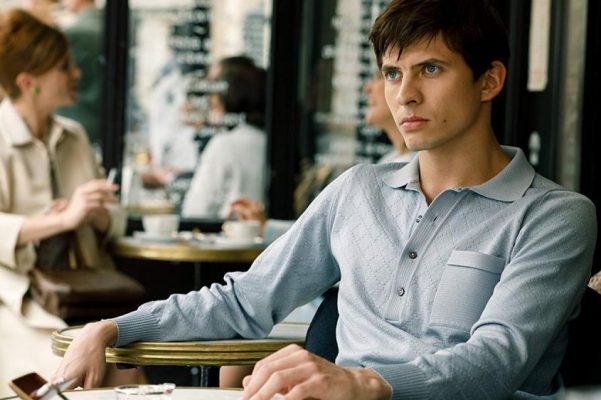@Filmhouse, Edinburgh from Friday 22 Mar 2019
During the height of the Cold War, East and West fought and vied with each other through ideology, military might, political will, and even through art. In the midst of that struggle, Rudolf Nureyev, virtuoso ballet dancer and soloist in the Kirov Ballet, rose to great acclaim. During a company tour at the Paris Palais des Sports, Nureyev took the opportunity to defect to the West. The reasons behind his defection, his egotism and his perfectionism are at the very heart of The White Crow.
As most people primarily know of Nureyev for his defection, the film wisely opens in the aftermath. Oleg Ivenko is a blessing as the arrogant and obsessive soloist; playing emotions with subtlety as his tortured anger brims beneath the suffocating weight of his existence. Given the focus on the physicality of ballet, it’s understandable that the part of Nureyev would be played by a real dancer. Luckily, Ivenko has a wide and believable range, whilst also being an accomplished dancer. It’s no surprise that the cast acquits themselves brilliantly throughout the multi-lingual script, as Fiennes is no stranger to directing. Drawing believable performances from every role, and showcasing the reactions to Nureyev’s talents on stage and his brusqueness off it.
Fiennes himself plays Alexander Pushkin, Nureyev’s gentle and inscrutable dance master. His meek warmth lends a sympathetic feeling to a film that otherwise is largely devoid of human kindness. It’s a further testament that Fiennes, who famously learned the language in a few months for a role in Two Women, performs entirely, and directed much of the film, in Russian. He tells the story with a firm hand, weaving the narrative through the various periods in Nureyev’s life. Using a washed out, almost monochrome palette to show the penniless days of his youth; contrasting with a bleached and stylised film-stock look in 1961 Paris.
While the film is never dull, it suffers somewhat by never quite managing to engage with Nureyev as an empathetic character. His fierce arrogance is off-putting and while the pertinent flashbacks help explain his actions, they rarely forgive them. In many ways, they are not supposed to, as the repeated motif of the film is escape. Almost every other character is shown through how their actions ultimately only exist to constrain Nureyev. His self-imposed isolation and lofty anger is aimed ever at those who through action or inaction serve themselves rather than his goal of escaping in the beauty of his art. In that sense, The White Crow is much like Nureyev himself, imperfect, but stunning in its sheer bombastic insistence upon itself.
